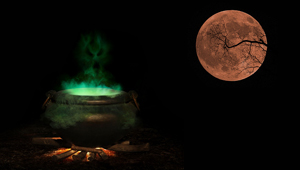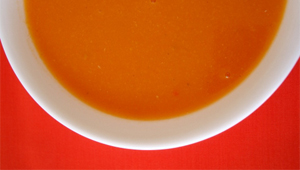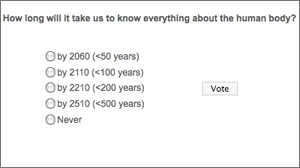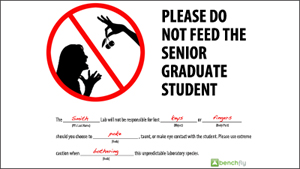The state of modern chemical and biological research is a direct result of countless contributions, large and small, by individual scientists who have preceded us. We’ve identified twenty of the proverbial giants upon whose shoulders we now stand. Now we want to know which ones are your favorite scientists.
BenchLife
Being a scientist isn’t just about doing experiments, so neither are we. This is where we make breakthroughs beyond the bench for scientists.
BenchFly’s Bloody Dry Ice Halloween Punch
by
 What’s scarier: Michael Meyers chasing you down the street with a knife -OR- Getting scooped as a 6th year grad student one week before submitting your manuscript? Being submerged in a pool of bloodsucking worms -OR- Contaminating the cell line it took you nearly two months to make? Spending the night in a haunted mansion alone with no electricity -OR- Discovering the plasmid you thought you were working with for the last five years is actually a completely different construct? Seems like every day is Halloween in lab…
What’s scarier: Michael Meyers chasing you down the street with a knife -OR- Getting scooped as a 6th year grad student one week before submitting your manuscript? Being submerged in a pool of bloodsucking worms -OR- Contaminating the cell line it took you nearly two months to make? Spending the night in a haunted mansion alone with no electricity -OR- Discovering the plasmid you thought you were working with for the last five years is actually a completely different construct? Seems like every day is Halloween in lab…
When I Grow Up I Want to Be… A Scientist.
by
 One way or another, we’ve all ended up in science. As you talk to fellow scientists about how they got to where they are today, the answers are as diverse as the projects we work on. Some were influenced by a great teacher, some by their friends and others, it seems, were just born with a passion for science.
One way or another, we’ve all ended up in science. As you talk to fellow scientists about how they got to where they are today, the answers are as diverse as the projects we work on. Some were influenced by a great teacher, some by their friends and others, it seems, were just born with a passion for science.
Has the Internet Ruined Vacation?
by
 Occasionally, we need to drop the assay, turn off the HPLC, freeze the cells and take a vacation. At first pass, disconnecting from lab sounds easy- as research seems like a profession in which making progress is heavily dependent on physically being in lab. After all, it’s hard to express and purify protein (other than melanin) while sitting on a beach in Aruba. Yet there are always papers to read, emails to respond to or friends to keep up with – and the internet has made it very hard to escape these responsibilities.
Occasionally, we need to drop the assay, turn off the HPLC, freeze the cells and take a vacation. At first pass, disconnecting from lab sounds easy- as research seems like a profession in which making progress is heavily dependent on physically being in lab. After all, it’s hard to express and purify protein (other than melanin) while sitting on a beach in Aruba. Yet there are always papers to read, emails to respond to or friends to keep up with – and the internet has made it very hard to escape these responsibilities.
Take Your Dissertation Research Mulligan
by
In golf, a horrible tee shot can often be remedied by a mulligan – a do-over – that gives the offender a chance to improve upon the recent catastrophe. Knowing how the first shot ended up, the golfer will usually make the proper adjustments to avoid repeating the same mistake. The result is usually a better shot that allows the golfer to keep moving forward, as opposed to searching for their ball in the woods for 15 minutes. Here, we’re issuing a mulligan for your dissertation research…
Kirem’s Carrot Ginger Soup Kreation
by
 Now three weeks into fall, gone are the warm summer BBQs and refreshing salads. We’re in soup season now and while that usually doesn’t mean much to me, this deliciousness made me a convert. Furthermore, between the pepper and ginger, this soup packs a spicy punch that’s great for fighting off the impending cold and flu season.
Now three weeks into fall, gone are the warm summer BBQs and refreshing salads. We’re in soup season now and while that usually doesn’t mean much to me, this deliciousness made me a convert. Furthermore, between the pepper and ginger, this soup packs a spicy punch that’s great for fighting off the impending cold and flu season.
How Much Do You Really Like Your Labmates?
by
 Recently, we asked whether labs should operate more as a family unit or as a group of individuals and the overwhelming majority of respondents came down on the side of family. It seems people do best in a lab environment where ideas, questions and support can flow freely among members for the good of both the individual and the group. However, while it’s easy to say things should be like a family, our reality in the lab may prevent it.
Recently, we asked whether labs should operate more as a family unit or as a group of individuals and the overwhelming majority of respondents came down on the side of family. It seems people do best in a lab environment where ideas, questions and support can flow freely among members for the good of both the individual and the group. However, while it’s easy to say things should be like a family, our reality in the lab may prevent it.
Write Grants Like Kenny Rogers?
by
 Had Kenny Rogers been an academic, the refrain to his legendary song, The Gambler, may have turned out differently as The Grant Writer: “You’ve got to know when to write ’em, know when to spite ’em / Know when to walk away, know when to run / You never count your funding, till it’s written in your ledger / They’ll be time enough for counting, when the deadline’s done.” Of course, that version of the song probably wouldn’t have vaulted Kenny to the wild success that ultimately gave us Kenny Rogers Roasters – and that’s a lose-lose for everyone.
Had Kenny Rogers been an academic, the refrain to his legendary song, The Gambler, may have turned out differently as The Grant Writer: “You’ve got to know when to write ’em, know when to spite ’em / Know when to walk away, know when to run / You never count your funding, till it’s written in your ledger / They’ll be time enough for counting, when the deadline’s done.” Of course, that version of the song probably wouldn’t have vaulted Kenny to the wild success that ultimately gave us Kenny Rogers Roasters – and that’s a lose-lose for everyone.
Beware of the Graduate Student
by
As kids, a trip to the zoo is like steroids for our imagination. We walk around in wonder and awe of the incredible animals – Where did they come from? Do they ever sleep? Why does that one seem so cranky? What’s that smell?!
And then we become graduate students and it all makes sense…
Mastering the Human Body: How Much Longer?
by
 If we could jump in Michael J. Fox’s Delorian and travel back to 1950 to share the list of major scientific discoveries to come over the next 60 years, we’d sound crazier than new grad students who think they’re going to graduate within three years. Since Watson and Crick first published their helical model for the structure of DNA in 1953, the pace of biochemical research has been astounding. We sequence entire genomes, we clone live organisms and we have multiple drugs on the market to help old men get erections. Ah, modern science.
If we could jump in Michael J. Fox’s Delorian and travel back to 1950 to share the list of major scientific discoveries to come over the next 60 years, we’d sound crazier than new grad students who think they’re going to graduate within three years. Since Watson and Crick first published their helical model for the structure of DNA in 1953, the pace of biochemical research has been astounding. We sequence entire genomes, we clone live organisms and we have multiple drugs on the market to help old men get erections. Ah, modern science.




